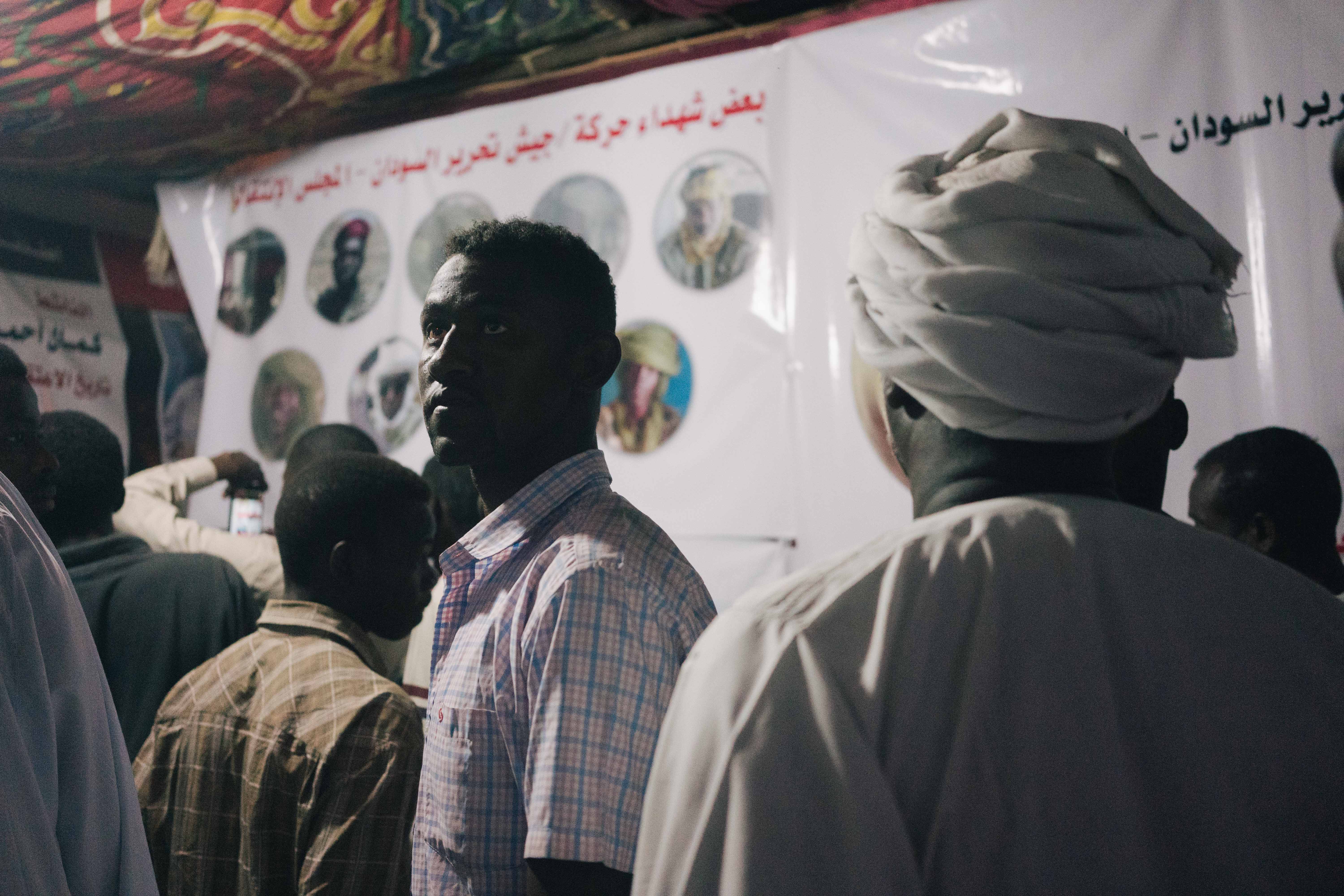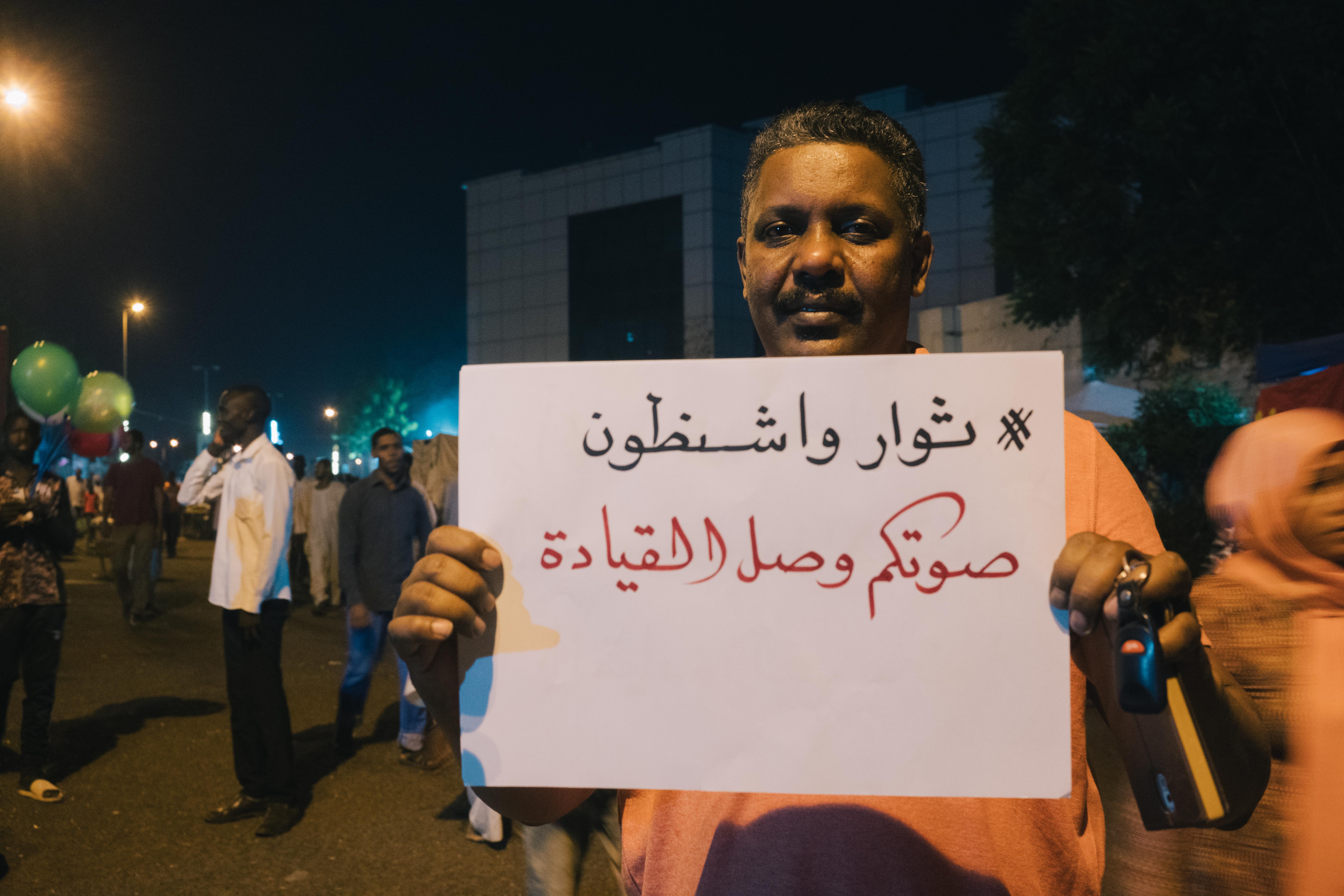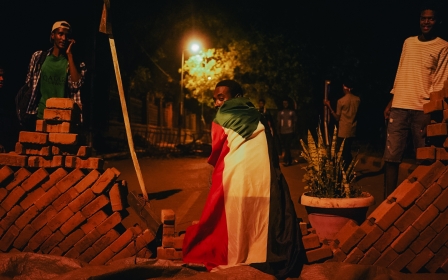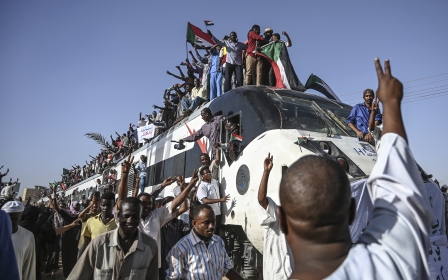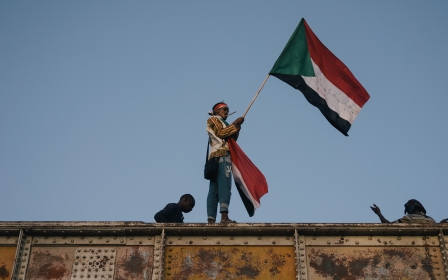By train and by plane, Sudan's people gather to protest for a new nation
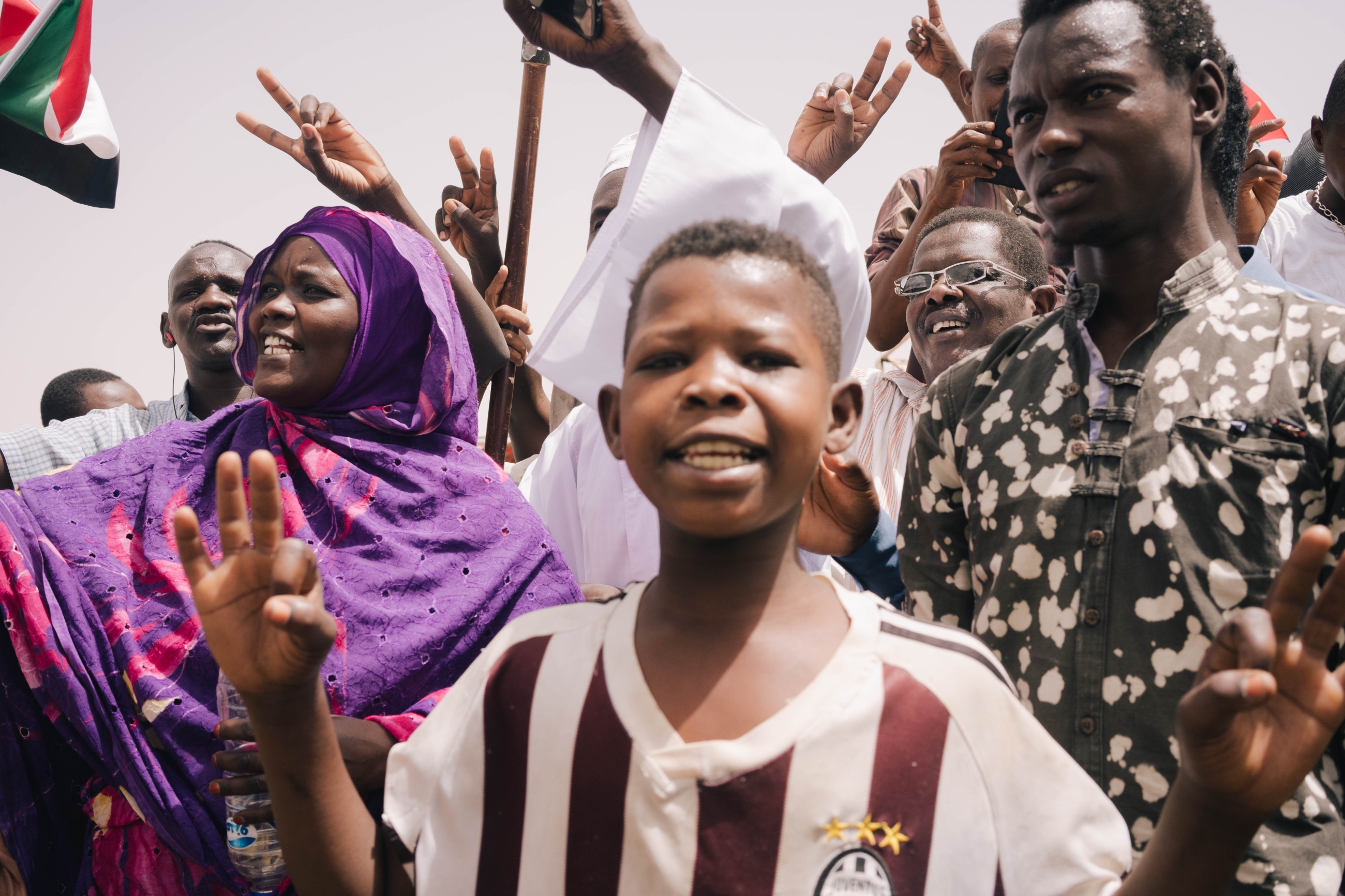
Scrunching up her face, Fatima Ali Issa tries to hold back the tears as her friends list the family members they lost when their villages in Darfur were raided by pro-government militias.
The names of siblings and parents and children fall off their tongues. Now that Omar al-Bashir - the Sudanese president who ordered those attacks - has been ousted, they are demanding justice.
"They killed us all. They killed my aunt, they killed my sisters, two of them," said Issa, who describes herself as being over 50 years old. "We came here to help the people, to sit here and be present."
Issa and a group of other Darfuri women hitchhiked from displacement camps near their original homes to the capital Khartoum earlier this month. They came to camp out at the sit-in outside the country's military headquarters, where protesters have been demanding a civilian government.
Since it started on 6 April, the sit-in has drawn in protesters from all over. They have come from Darfur and Sudan's other conflict zones; from the deprived provinces where protests against Bashir were first ignited in December; and from abroad, where members of the diaspora have been inspired to return and demand the military rulers who replaced Bashir on 11 April hand power over to civilians.
The women from Darfur arrived at the sprawling protest site with nothing.
Settling under the sun, they gradually gathered the materials to create a tent and sell tea and coffee to the other protesters.
But they are also demanding their blood money - compensation for their fallen. And they are not alone.
Decades of spilt blood
Blood is spoken about often around the sit-in, almost as much as the demand for civilian government. Speeches and chants delivered at the dozens of rallies and impassioned marches that are always taking place throughout the protest site often refer to the blood of the revolution's fallen, which they say must be compensated by meeting the demands of the demonstrators.
For the women from Darfur, their blood has been spilt for far longer. The UN has estimated that at least 200,000 were killed by Bashir's forces and its allied Janjaweed militias from 2004 onwards, leading to widespread accusations of genocide.
More than two million people were estimated to have been displaced by the government's operations against Darfur-based rebels, which included widespread attacks on civilian villages belonging to the non-Arab communities Bashir accused of supporting the rebels.
"Even before this movement I was a revolutionary," Noor Asha, 31, tells Middle East Eye. "I saw the genocide, the burning of the villages, things without humanity."
Seven months pregnant, the member of Darfuri rebel group the Sudan Liberation Army (SLA) travelled from Uganda to join the women.
"Now I'm happy, I see everyone understands, not just the people of Darfur or the Nuba Mountains or Blue Nile," she says, referring to other parts of Sudan that suffered at the hands of Bashir's regime.
"Any man who carried out genocide must leave so the people can set up a civilian government."
On Fridays, worshippers travel in on the back of pick-up trucks from Khartoum's surrounding villages to join midday prayers and throughout the week convoys of buses from cities around the country ferry in protesters wanting to join the protest in the capital, even as simultaneous sit-ins continue in most other cities of Sudan.
Thousands celebrated in April when a train carried in protesters from Atbara, the northern city where protests against Bashir started on 19 April with the torching of his ruling party's local headquarters.
'Together as one'
As he went through immigration after landing at Khartoum's airport, Hossam Osman wore a placard strapped to his body announcing "From Washington [to] the sit-in at the military headquarters."
Osman has lived in the US for more than 20 years and last visited Sudan only months before the December protests began, when he had no inkling of what was to come. The events he had been watching from afar motivated him to plan a return trip much quicker than expected.
"Year after year, life has been getting tighter here. There weren't a lot of things. There was a shortage in money, shortage in gas, shortage in bread," he told MEE. "There was a lot of suffering and a lot of anger."
The images Osman saw of the protests from abroad struck a chord with him and when the sit-in started, he made a decision to travel.
"I was almost crying, I wanted to go there and be a part of this," he said. "I didn't want to stay out there watching it like a foreigner, this is my country."
The plan had originally been to charter a plane and travel with 300 others from the Sudanese diaspora in the US, though ultimately a smaller group travelled because the families among them were waiting for school to finish.
After he arrived in Khartoum, he spent every night at the protest, breaking his fast and catching up with childhood friends at the site.
"What you see here is all Sudan. All Sudan together as one," he said.
Middle East Eye delivers independent and unrivalled coverage and analysis of the Middle East, North Africa and beyond. To learn more about republishing this content and the associated fees, please fill out this form. More about MEE can be found here.


